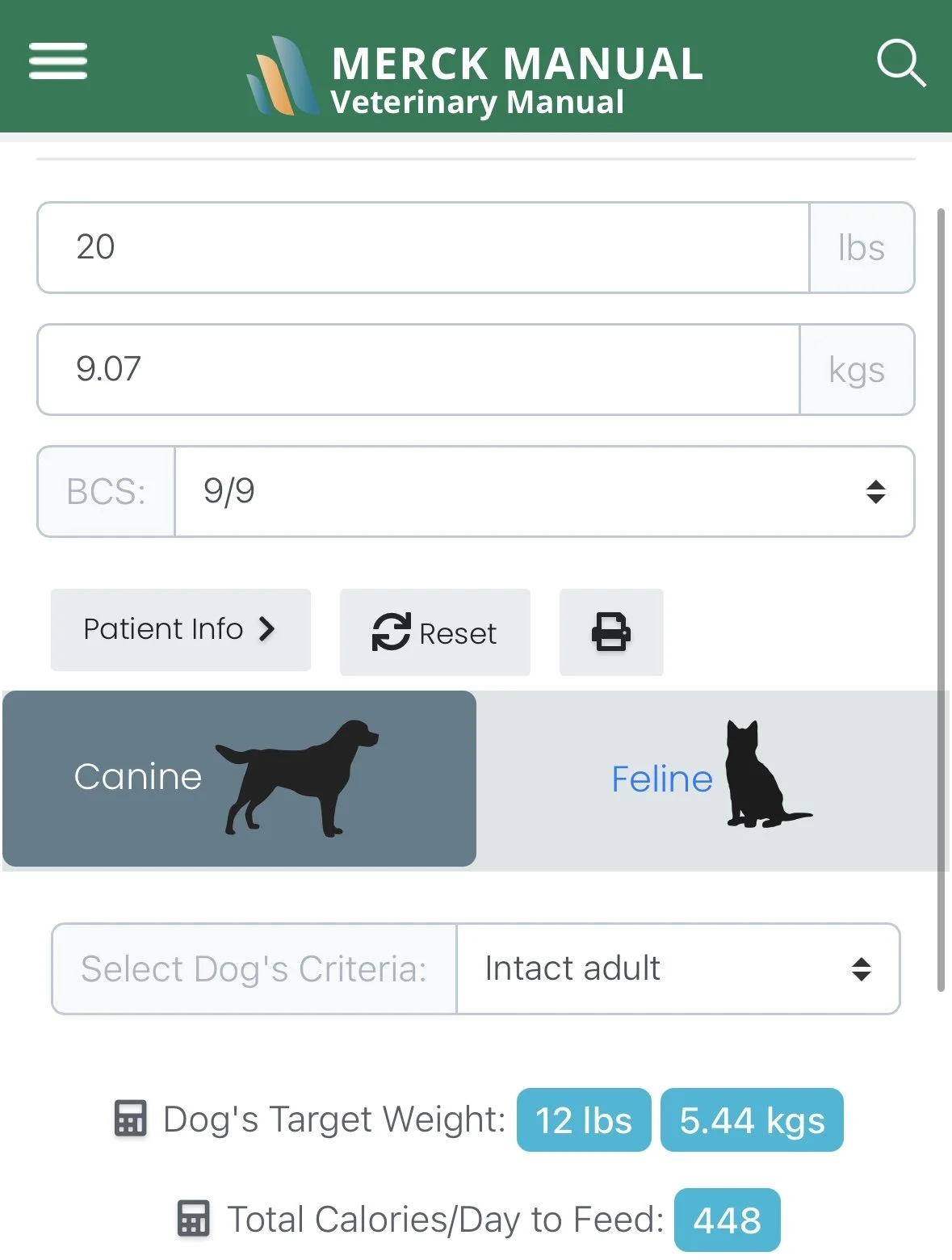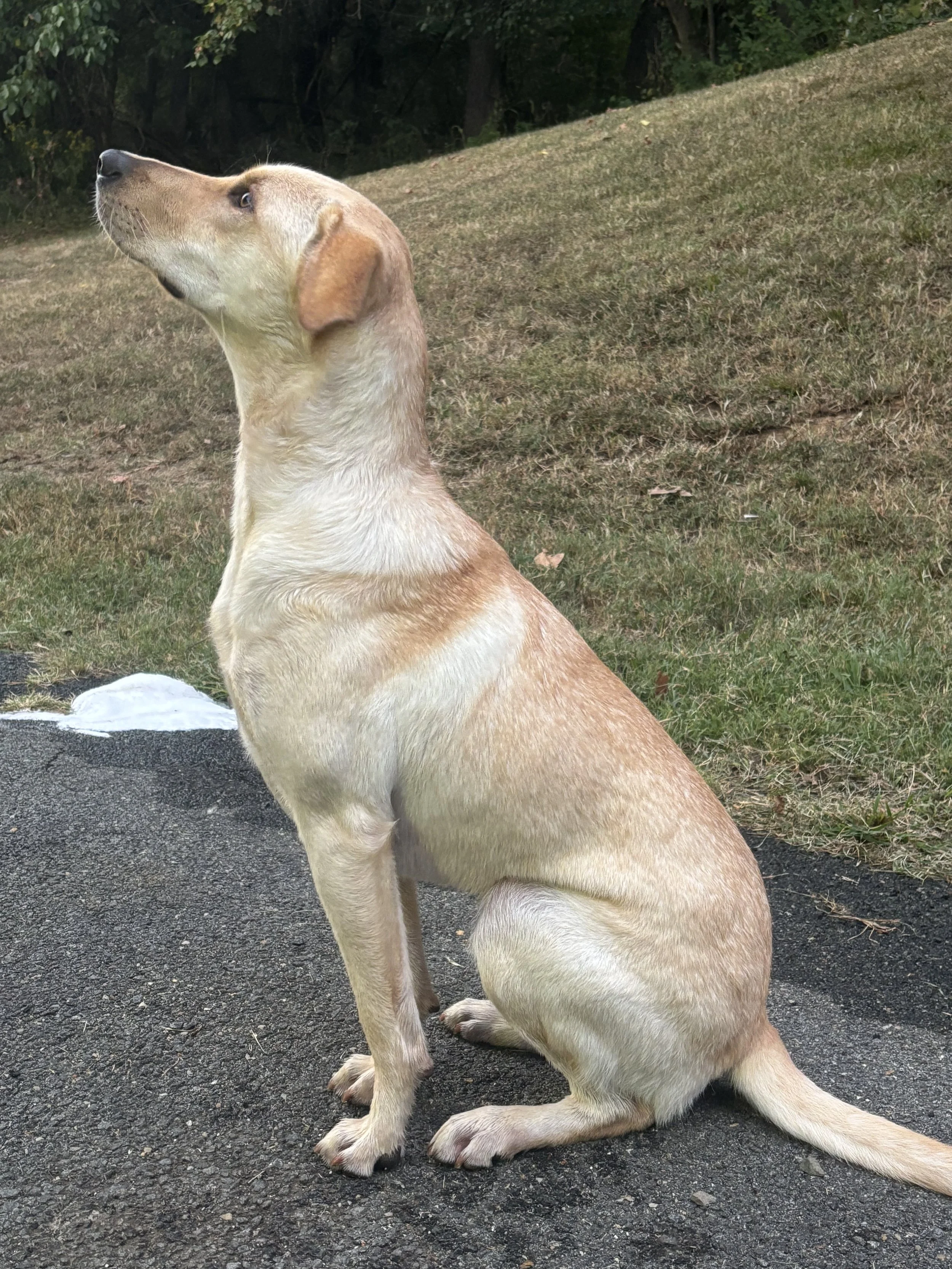The Danger of Not Knowing
I had an extremely enlightening conversation with a dog guardian regarding their dog’s weight this week. Their dog came to board in my home & she mentioned that the dog was overweight, needed to lose 4 lbs, and she was super picky. I found this combination interesting, and even more interesting was the plethora of food options given to me to try with the dog. Chicken, cheese, and grocery-store pet aisle type treats filled the bag. Kibble wasn’t included. The dog was a 9/9 on the Purina Body Condition Score.
I happen to have a veterinary scale in my basement. I weighed the dog & she was 20lbs. Purina reports that every body condition score (BCS) unit increase comes a 10-15% increase in body weight (see link under photo above). Doing this math myself, I estimated that she was about 40-50% overweight. I followed this up using the Merck Veterinary Calorie Calculator to confirm & calculate her calories.
This also informed me this dog needed to lose close to 12lbs, not her originally reported 4. With my client’s permission, I switched this dog to my kibble, Inukshuk 30/25. My dogs are athletes and keeping weight on them is difficult, which is why I opt for a highly calorie dense food option. This would not be my regular recommendation for this little dog.
I knew she was picky and added a little of her own chicken to the kibble with water. She barely ate while she was with me, but food was always available to her. She went on one 15 minute power walk a day.
She went home yesterday and I woke up to her guardian incredulously asking me how I finally got her dog to lose some weight. I explained my entire process, complete with links, images, and descriptions. I asked to see what brand of kibble this dog was eating.
I nearly fell out of my seat when the image came through. Puppy food.
Puppy food is highly calorie dense, high in fat, and high in protein: optimal for growth and development. For an 8 year old low activity dog, this was absolutely contributing to her weight gain.
I gently explained to her guardian how puppy food is optimal for growing dogs, not adult dogs who need a maintenance diet. I sent her another formula by the same brand, recommending a switch.
She was so receptive, saying her vet has been on her for years about the dog’s weight, but she felt left in the dark as to how to get the dog to actually lose weight.
This guardian is very conscious; it was clear from my other interactions with her. She cares deeply about her dog & her dog’s health. However, she simply didn’t know. She is not a dog person, she’s someone with a dog. That’s okay; most pet guardians are in this boat. The canine obesity epidemic is widespread and getting worse every day. People don’t know how to evaluate their dog’s weight, and veterinarians don’t want to have the conversation.
Piper, a purebred yellow Labrador, at a perfect weight, or 4/9 BCS.
Purina came out with a study a few years ago discussing how dogs who maintain a heathy weight live longer than dogs who don’t. Weight affects everything about the dog’s health, joints, organs, and even longevity. Our dogs cannot make an informed choice about their diet, exercise, and weight as we can. They cannot ask for labs to check their health or see if they have factors limiting weight loss. It is up to us, as their guardians to choose that for them.
This is not fat shaming; this is responsible pet guardianship.


